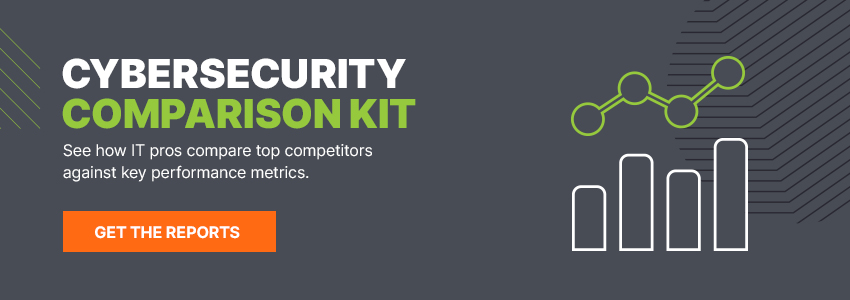Discover the benefits of endpoint security and the protection it provides for business or home cybersecurity.
What is an endpoint?
An endpoint is any device that is physically an end point on a network. Laptops, desktops, mobile phones, tablets, servers, and virtual environments can all be considered endpoints. When one considers a traditional home antivirus, the desktop, laptop, or smartphone that antivirus is installed on is the endpoint.
What is endpoint security?
Endpoint security refers to cybersecurity services for network endpoints. These services may include antivirus, email filtering, web filtering, and firewall services. Endpoint security plays a crucial role for businesses, ensuring critical systems, intellectual property, customer data, employees, and guests are protected from ransomware, phishing, malware, and other cyberattacks.
Without these endpoint protections in place, businesses could lose access to their valuable data, risking the very survival of their business. Repeat infections can also lead to costly downtime and the allocation of resources to remediating issues over critical business goals.
Learn more about
Endpoint Protection
How does endpoint security work?
Endpoint security works by allowing system administrators (in business applications) to control security for corporate endpoints using policy settings, depending on the types of protection or web access employees and systems require. For example, admins would be wise to block access to websites known to distribute malware and other malicious content in order to ensure full endpoint security protection.
A next-generation endpoint security solution should be cloud-based, and should use real-time machine learning to continuously monitor and adapt each endpoint’s threat detection, protection, and prevention. Comprehensive endpoint security tools defend both physical and virtual devices and their users against modern, multi-vector threats. Ideally, it would use behavioral heuristics to analyze files and executables in real time, proactively and predictively stopping threats. In this way, a next-gen solution offers significantly more effective protection than more traditional, reactive endpoint security solutions.
Why is endpoint security important?
Endpoint security is crucial for businesses of all sizes. Cybercriminals are constantly devising new ways to take advantage of employees, infiltrate networks, and steal private information. And while smaller businesses may think they’re too small to be targeted, it’s actually the opposite. Cybercriminals are banking on your feeling that way, and will specifically target smaller businesses in the hopes that they haven’t implemented adequate endpoint security. Whether you’re a small office with under 10 employees or a multinational corporation, you need make sure you have reliable endpoint security services in place.
Learn about streamlined, cost-effective, next-gen endpoint protection from Webroot
What are the benefits of endpoint security?
Home and business devices – like smartphones, tablets, laptops and desktops – are vulnerable to numerous threats from cybercriminals. While the user may enable a threat actor access to their device by falling for a phishing attack or opening a suspicious attachment, having an endpoint security solution can keep malware from spreading through the machine.
The benefits of endpoint security include:
- Protection for devices – Including, in addition to traditional malware like ransomware and Trojans, file-based and fileless script attacks and malicious JavaScript, VBScript, PowerShell and other macros.
- Cost savings – By preventing the necessary remediation of malware-ridden devices, protecting trade secrets and other intellectual property, aiding device performance and preventing ransomware attacks.
- Time savings – By freeing up IT staff or managed service providers to focus on core business objectives, ensuring uptime for all devices, and streamlining the management and prevention of online threats.
- Compliance satisfaction – Many industries are governed by data security regulations which require special precautions against the theft or private personal data, like retail, healthcare and the public sector to name just a few.
Learn more about the benefits of endpoint security and how it protects your businesses data.
What’s the difference between endpoint security and endpoint protection?
The short answer: there isn’t one. These terms are interchangeable. Some vendors may define one term to refer to cloud-based or next-gen solutions while the other refers to on-premises products. However, these distinctions are really just a matter of vocabulary, not a difference of functionality or capability.
What’s the difference between endpoint security and a firewall?
While a firewall and endpoint security protection are both designed to protect devices and users against cyber threats, they do so in different ways. A firewall is a gateway that filters network traffic, and is, therefore, a type of network security (see below).
Firewalls typically fall into either of two categories: network firewalls and host-based firewalls. Network firewalls filter traffic between two or more networks, such as the World Wide Web and a business’ network, and run on network hardware. In contrast, host-based firewalls are installed and run on host computers (endpoints) and control network traffic in and out of those machines.
Although some endpoint security solutions may include firewall technology bundled within their feature set, they are technically disparate types of protection. Businesses should have both in place as part of a layered cybersecurity strategy.
What’s the difference between endpoint security and network security?
Just as endpoint security protects and resides on individual endpoint devices, network security is designed to protect networks and runs at the network layer. While endpoint security protects mobile devices, laptops, servers, and virtual machines from malware and other endpoint threats, network security protects against network based threats.
By filtering web traffic through a network security solution, businesses and MSPs can finely tune and enforce web access policies, ensure regulatory compliance, and even stop threats before they can get into the network and begin infecting endpoints. Learn about Webroot’s network security solution for businesses, Webroot DNS Protection, here.

